Zip code and skin color: the power in the stories that nobody tells
December 7, 2018
Sixty years ago, 10 before Parkway West opened its doors, Arkansas governor Orval Faubus infamously shut down the entirety of Little Rock’s public high school system following pressure from the federal government to enforce the landmark Brown v. Board of Education of Topeka Supreme Court ruling. In a later referendum, voter support for continued school segregation tripled the desegregation movement.
The battle for racial equality in schools has raged on for decades upon decades. From vicious attacks against the “Little Rock Nine” to President Richard Nixon emphatically stating, “I am against busing, as that term is commonly used in school desegregation cases. I have consistently opposed the busing of our nation’s schoolchildren to achieve a racial balance,” fierce backlash has perennially confronted various measures intended to bridge inequality gaps in American schools.
Although overt Jim Crow segregation in public domains like water fountains, restaurants, buses and schools has been outlawed, implicit discrimination has persisted to outlive the Civil Rights Movement.

An infographic comparing statistical information between St. Louis City and County.
The Voluntary Interdistrict Choice Corporation (VICC) offers transportation for students from St. Louis City to attend schools in one of 11 suburban districts. However, federal court rulings such as Board of Education of Oklahoma City v. Dowell effectively mark the end of VICC. The program that has allowed over 60,000 African-American students to explore alternative education options will be gradually phased out until no new students are accepted by 2024. The upshot is that VICC’s looming extinction is set to worsen inequities that were already trending in the wrong direction.
St. Louis remains one of the most segregated cities in America, due in large part to a staunch city-county divide that emerged from “white flight” and the proverbial evaporation of the city’s tax base in the 1950s. Today, African-Americans in the Greater St. Louis Area face a poverty rate nearly four times that of white citizens, all the while a disconnect increasingly grows between a chronically underfunded city and a more affluent, predominantly white county.
These socioeconomic disparities have directly translated to a widening gap in access to quality education for city and county students, as evidenced by night-and-day differences in Missouri Assessment Program (MAP) Test scores. (Refer to the infographic comparing the ten city and county public schools with the highest proficiency rates in each subject.)
Dr. Martin Luther King Jr. proclaimed a desire for his kids to be judged “by the content of their character.” Fifty-five years later, zip code and skin color still serve as unsettling barriers that millions of children across America must overcome. This troubling disharmony was exposed nationally in 2014 during the unrest in Ferguson, Mo. after the killing of Michael Brown. A city and county separated by just a 30-minute drive appear to be two entirely different worlds.
Parkway West is situated in Ballwin, Mo., a town in which African-Americans comprise just 2.3 percent of the population according to 2010 census data. As whatever little diversity West could lay claim to sits in critical condition, the importance of embracing the qualities that make us unique rings louder now than ever before.
We at the Pathfinder are admittedly guilty for our contributions in shaping the “West County bubble.” It is impossible to remedy the inequalities that plague our community when we fail to recognize the voices and perspectives of the historically marginalized, something we as a publication hope to make amends for this school year. What follows are not superficial stories lauding trophies hoisted and competitions won, but the harrowing truth of where West stands regarding discrimination in 2018.
Behind the glitz and glamor: junior Aaliyah Weston’s fight against black stereotypes
Standing alone, junior Aaliyah Weston completes a dance routine while her poms teammates drop to the floor. The team performed with the entire school watching at the Homecoming pep assembly Sept. 28. “Once I got all that applause it was like, ‘Oh, I do matter and I’m a black girl making a change at Parkway West,’” Weston said.
“Being a token black kid, not being allowed to be angry ever because people just know me as–”
Junior Aaliyah Weston pauses, searching for the right words before redirecting her line of thought.
“You know when kids say, ‘I have a black friend?’ I’m that black girl, so it’s really hard for me to maintain myself,” Weston said.
The student body knows Weston primarily as an actress, a dancer and the creator of a YouTube channel marching towards 5,000 subscribers. Internally, however, she feels pressure to never back down in the fight against prejudicial stereotypes that she claims a predominantly suburban community “definitely brush[es] under the rug.”
Weston’s typical day begins at 4 a.m.. Awaiting her is a 90 minute bus ride, seven-hour school day and after school activities ranging from the Running with Scissors improv and poms teams, until she finally departs campus around 8 p.m.
“I have [time] to get some of my schoolwork done right before poms starts and as soon as school ends. I get those hours in between, but I really try to do my work in class since I don’t get much time out of school,” Weston said. “There’s lots of things I can’t do just because I know it’s such a long drive here and long drive back home, but I try to do everything I can to stay [involved]. I definitely feel every day is like ‘You were put here for [a] reason, so you have to do exactly what you were meant to do.’”
Further complicating Weston’s already intricate schedule are challenges the average student living in the county might not have ever stopped to consider, namely, sporadic access to transportation.
“Travel is really hard. We try to get cabs for me, but sometimes those cabs are really late. It just depends on the situation so transportation is really, really hard. I think sometimes [the school doesn’t] worry as much as they should. We try to integrate but we really are very segregated,” Weston said. “I want to be positive about it because I think they’re really trying, but they’re ignorant towards it, they don’t realize. You have to go through it to know it and most people at this school definitely have not gone through the lifestyle of having to travel hours just to get to school—hours just to get a good education.”
Studies such as a 2008 Texas Tech University report cite inaccurate portrayals within mainstream American media and pop culture as a significant contributor to the development of black stereotypes.
“Black girls aren’t as aggressive as they are portrayed. We are more than just our skin color. There’s lots of things I’m a part of [in which] I’m the only black girl, so sometimes it gets really hard because I have to learn to adapt to everything and everybody,” Weston said. “Ignorance in some situations is bliss, but at school I think so many people aren’t educated on things and I try really hard to educate everybody. As my friend, I would never want you to feel uncomfortable so you should never want me to feel uncomfortable. There’s certain situations where people say things and they don’t know that they’re ignorant and I just have to educate them without getting angry.”
Weston, confronted by prejudicial rhetoric on a daily basis as a city student in West County, seeks to use her platform as a performer to dispel detrimental stereotypes about black women.
“I love being very expressive. If nobody else is talking, I’m going to talk. I love speaking out because you don’t always get the opportunity to be number one, and I want to show that black girls are more than the stereotype we are always portrayed as. When I’m in classes, I just love being energetic and being right in front of everybody showing that I’m more than that stereotypical black girl,” Weston said. “It’s more than just you and me, it’s more than just my lifestyle and your lifestyle. Everybody is here on Earth whether you like it or not, so you have to realize everybody’s position and I think that’s something we really need to realize.”
As a student in Ballwin, Mo., a municipality in which just one out of every 43 residents is African-American, Weston believes a general lack of awareness regarding the presence of white privilege exacerbates racial tensions and discrimination.
“White privilege for sure occurs. I wouldn’t want to host seminars because we already have ASAP [African-American Student Acceleration Program] where black kids get together and we talk about white issues and black issues in our households and families, but I feel like we all should get together,” Weston said. “Nobody will ever know until you tell them, and it’s really hard to change people’s minds on what they think because white people don’t realize that they have such a privilege and their lifestyle is very wealthy. Even if it’s not money wealthy, you have all these privileges and you don’t even understand it.”
Weston particularly felt a burden to avoid the pitfalls of black stereotypes when she was selected as a maid on the 2018 Homecoming Court, an experience that also entailed a sense of representing the entire black student body.
“Especially during Homecoming, I was really scared because I thought that if I was to slip up, then everybody would just think I’m a horrible person,” Weston said. “Before [Homecoming], I wasn’t as excited because I was like, ‘nobody here cares about this. Nobody cares about me going to this school,’ but once I got all that applause it was like, ‘Oh, I do matter and I’m a black girl making a change at Parkway West.’
“To black girls, I hope that I’m still influencing you to be the best you could be. To everybody, I just want you to continue to educate in a way where we all are one and we all stay integrated. Stay powerful, black girls, because you are.”
Bus rides, bigotry and alumna Gabrielle Thompson’s high school experience
Providing each other feedback, alumni Sydney Kinzy and Gabrielle Thompson revise fiction stories they wrote. Both were members of the literary magazine production club, Reflections, which met once a week on Mondays. “Any clubs that took place before school or on Fridays, I had no possible chance of participating in them due to either the city buses showing up too late to school or there being no transportation available at all,” Thompson said.
The clock strikes 4 a.m., but alumna Gabrielle Thompson is already wide awake. A pitch black skyline engulfs St. Louis City amidst a bitter, cold morning that native Missourians know all too well.
“I was definitely dependent on coffee for all four years of high school,” Thompson said.
Now a freshman at St. Louis University, the Class of 2018 graduate recalls an hour-plus long bus ride that culminated in a social life constrained by inadequate transportation services and open hostility from some of her white West County peers.
While closer proximity to campus allows many county students to ease into a consistent daily routine, rides to and from school proved to be anything but certain for Thompson.
“The bus ride was usually about an hour long, sometimes longer if they made us combine buses. The time I got to school depended on a lot of things, such as how much traffic was on Highway 40 [and] whether or not the bus broke down, which it did a lot,” Thompson said. “At the end of the day, if I had the time, I’d run to my locker and get rid of the books I didn’t need to save my back some pain. If I didn’t have time, I’d just suck it up and run to my bus because the bus drivers were leaving at 2:40 p.m. whether you were on the bus or not.”
Teachers, counselors and college admissions departments alike continue to preach the benefits of getting involved in athletics and extracurricular activities. All the while, Thompson’s aspirations of bridging social gaps through various clubs, sports teams and school events were effectively dead on arrival. Outside of the literary magazine production club, Reflections, and the African-American Student Acceleration Program (ASAP), she was more or less shut out of many opportunities offered at West due to reliance on either her working mother or school bussing for transportation.
“[Living in the city] impacted my social life in that I didn’t have one. Not having reliable transportation out to the county definitely affected my ability to participate. I couldn’t participate in any of the clubs that had meetings before school because my bus would never make it to school early enough,” Thompson said. “I couldn’t participate in any of the clubs or events that happened on Fridays because the after school city buses only ran from Monday to Thursday. Going to any basketball or football games were out of the question unless I could spend the night with one of my friends who lived in the county. A lot of my friends actually lived out in the county, but I barely got the chance to see them outside of school.”
A 2017 study conducted by graduate students and professors at the University of California, Riverside and San José State University presents “research that brings to light racism’s permanence and significance in the lives of students of color.” Even in the absence of legalized segregation, Thompson cites personal experiences with bigotry to corroborate this notion.
“I’ve had students who aren’t black say the n-word around me and justify it by saying, ‘my black friends say it’s okay if I say it.’ I’ve seen students completely disregard and invalidate the Black Lives Matter movement,” Thompson said. “I always felt uncomfortable discussing political and racial issues in any form at school. I feel like if I had mentioned the Black Lives Matter movement in any capacity, I would have been immediately shut down by my fellow students. I distinctly remember in my senior year, a few juniors making fun of the protesters in the city after the acquittal of Jason Stockley, and I just remember feeling so disgusted.”
Thompson also points towards misinformed stereotypes as a reason for the city-county disconnect.
“I feel like the most challenging part of being a city student in the middle of West County was just how different the county students were from the city students. So many students thought that the living in the city meant I had to dodge bullets 24/7 or that people were committing crimes all the time,” Thompson said. “I do admit that some parts of the city are dangerous, but every city has crime. St. Louis isn’t special in that regard. I’ve out of nowhere had multiple people ask me, ‘do you hear gunshots every night?’”
As West continues to explore methods for promoting diversity and tolerance, Thompson has one message for her former administrators and teachers: whatever the school does must be genuine and not a watered-down curriculum.
“I’m a little hesitant to say anything seeing as the past few times West has tried to be inclusive people turned it into one big joke, but I would say having more guest speakers come in would be a great learning experience,” Thompson said. “I remember one of the remaining members of the Little Rock Nine, [Terrence Roberts], came to speak at our school, and people were actually taking his message to heart. I feel like it’s hard to disregard someone’s experience if they’re speaking directly to you versus just reading about someone’s experience or watching a video.”
“I have to sacrifice”: junior Meela Abby’s daily struggle for education
An assortment of books cradled in her arms, junior Meela Abby arranges belongings in her locker. Abby was enrolled in Parkway from kindergarten, hoping to study psychology upon graduating high school. “My sister went to school here and she told me that as soon as I come here, I need to start working. With my schedule you can’t procrastinate or things go bad,” Abby said. “If you want your education, you have to work hard. It doesn’t come easy.”
“Would you say you face discrimination at this school?”
Junior Meela Abby wastes no time to answer, punctuating her response before I can even finish asking the question.
“Yes, for sure.”
The conversation falls silent again, but Abby simply smiles before restocking the room with laughter in a matter of seconds.
“I don’t ignore it because that’s just not my personality to let somebody talk to me in that way,” Abby said. “Let’s just say after they do that, they don’t do it again.”
Abby has been awake since 4:45 a.m. She didn’t bother eating breakfast before catching the first of several bus rides on her daily schedule. A St. Louis City resident, Abby spends her mornings at South Technical High School’s cosmetology program before traveling to Parkway West for fourth through seventh hour.
“I don’t think [county students] think about how hard it is to live on a tight schedule like I do. They’re like, ‘oh, you can just do this after school.’ No, I can’t do this after school. I have to do it now,” Abby said. “They don’t understand that living in the city actually makes school 10 times harder. I have to sacrifice my time if I want a good education. There’s no way they can get buses that go shorter routes.”
The 90-plus minute bus ride creates a rigid schedule that restricts every facet of Abby’s high school experience, from academics to extracurricular activities to her social life.
“Things for Link Crew are before school, so I can never get to them because I live in the city. I don’t think there’s any way to get me to school earlier than I already am,” Abby said. “Some days I want to go out with my friends, but I can’t because between friends and homework I don’t have enough time to do both.”
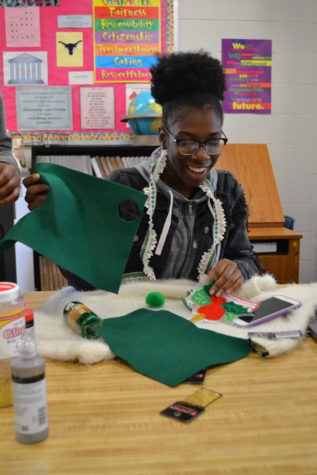
Junior Meela Abby decorates a sweater at a Fashion Club meeting.
Without the flexibility to manage her course load and homework assignments like the average county student might, Abby seeks to make the most out of every waking second—often at the expense of much-needed sleep. She regularly falls well short of the recommended eight to 10 hours of sleep for adolescents.
“I really don’t get enough sleep. I have to wake up so early that to get enough sleep, I have to go to sleep super early, but with all the homework that [teachers] give me I go to sleep around 11:30 p.m.,” Abby said. “I only know a couple teachers that actually understand [the time constraints that city students face], but other than that, I don’t think they know. I think West should let teachers know which students live in the city so that if they do have a problem with getting work done, they’ll know there’s a reason why. I wish they could experience it for a day so they can see how we feel.”
In response to the concerns expressed by students like Abby, the African-American Student Acceleration Program (ASAP) presents a platform for greater interaction between the black student body and a nearly 90 percent white faculty.
“I’m in a group called ASAP and we have teachers and administrators there that hear our side of the story,” Abby said. “When they tell me to come in early before school [to discuss assignments or tests], I just have to tell them I can’t and I’ve got to figure it out by myself. I do most of my homework in school or try to do it on the bus, but it would help more if I could go to teachers.”
Her message to fellow city students: rather than lash out, convert your pent-up frustration into positive dialogues.
“Sometimes people who aren’t like me say things and they don’t understand my side of the story, which is why they say it, but instead of singling them out I try to help them fix it,” Abby said. “If they say something, I would be like, ‘this is wrong because you did this. It would be better if you said this instead of that.’ For the kids who are facing discrimination, I think you should also try to help the people that discriminate because if you do that, it will make the school a better place instead of making it worse by getting angry and yelling at them. Instead of using [discrimination] as a put down to make you feel bad, use it as motivation to prove them wrong.”
Abby plans to study psychology in college, and she has no doubt in her mind that attending Parkway schools since kindergarten has put her in a better position to act upon those dreams. The district wide 95.18 percent graduation rate in 2017 was more than 20 percentage points higher than St. Louis Public Schools’ 71.92 percent figure.
“I feel like West prepares us [for college] really well. Most people that go to West end up going to college and having a career in what they want to be in. They don’t only teach you the class, they tell you what you can do with this knowledge that they’re giving you,” Abby said. “[My friends attending city schools] mostly say they don’t do anything in school. I think there are some city schools that prepare you for college, but not all of them.”
Following a phase-out period that begins next school year, the Voluntary Interdistrict Choice Corporation (VICC) that provides city students transportation to suburban schools will stop admitting new applicants entirely in 2024.
Programs like VICC offer city students the opportunity to receive an empirically superior education than otherwise available to them. Parkway, for example, scored a 98.6 percent grade in its 2017 DESE Annual Performance Report compared to 68.2 percent for St. Louis Public Schools. Regarding average composite ACT scores, more adequately-funded county districts such as Parkway outpace St. Louis City’s public school system, 22.5 to 16.1.
Alongside thousands of her aspiring peers, Abby’s access to a quality education is slipping away.
“I want to ask people why they think cutting off desegregation programs is a good idea. I really think [ending VICC] is a mistake because schools in the city are not accredited the same as Parkway West and the schools out here,” Abby said. “I feel like stopping that is stopping the education of a lot of kids that have the potential to be great.”

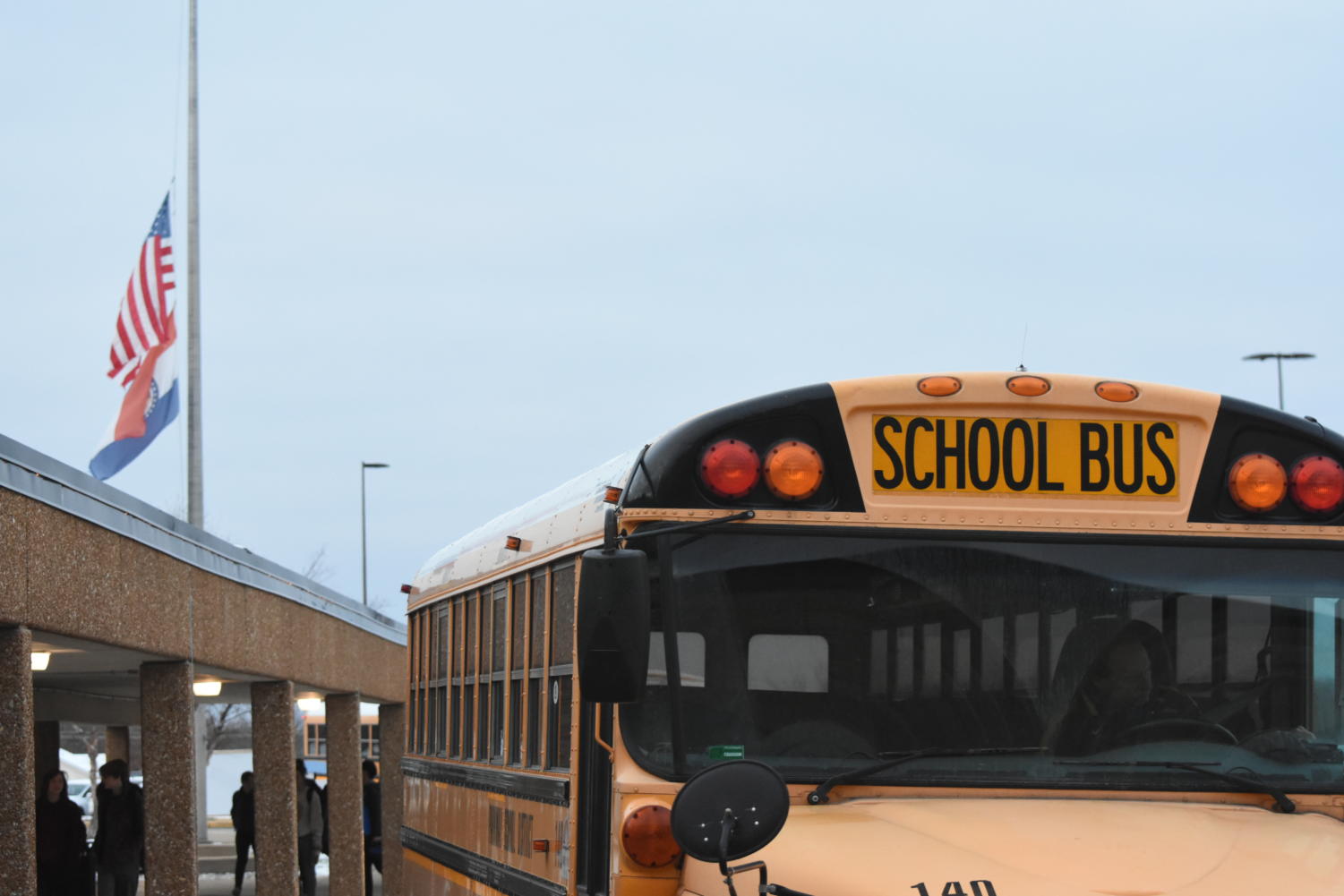
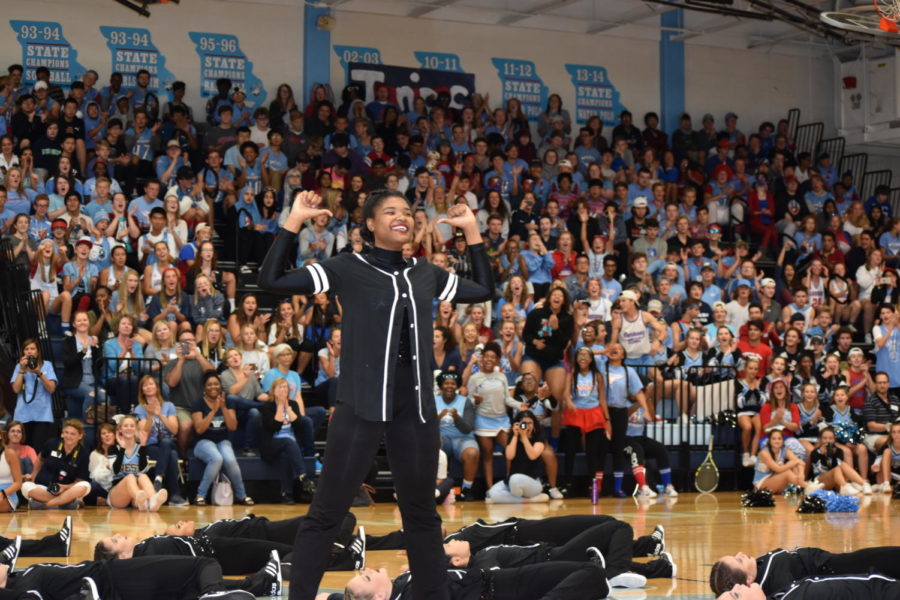
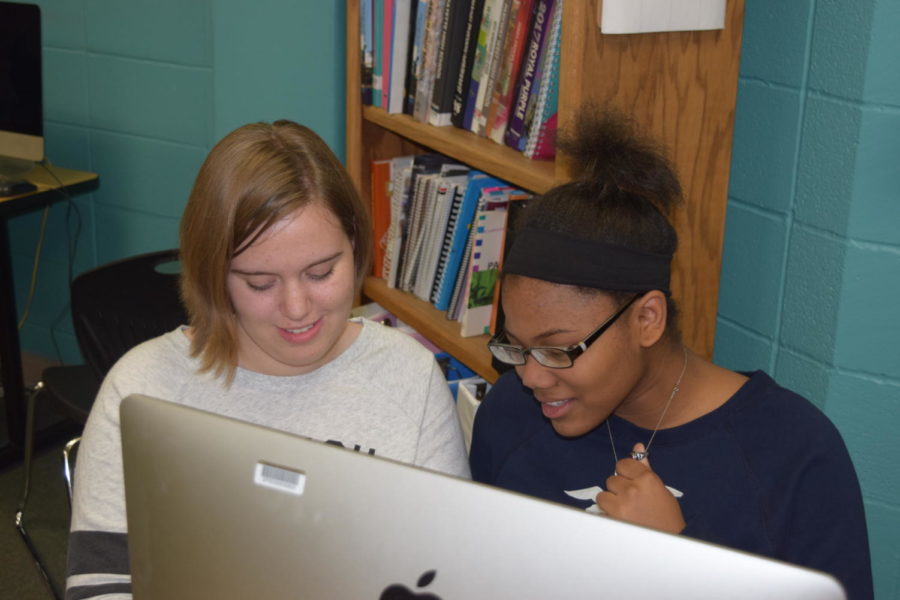
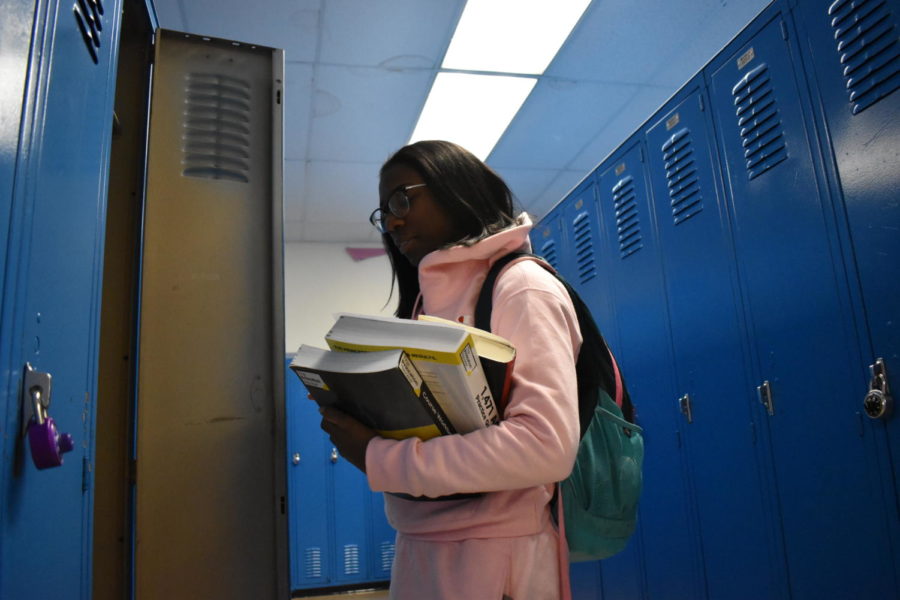
Tina Givens • Dec 20, 2018 at 2:45 pm
Great article and very well written. So glad these students were given a chance to voice their experiences. So important that we hear them.
Maddie • Dec 10, 2018 at 11:51 am
Great info. graphic and story, Tyler. So SO important
Mandy Michel • Dec 8, 2018 at 12:52 am
Great articles! Thank you so much for your valuable perspectives on race in Parkway West.
Susan Santhuff • Dec 7, 2018 at 12:12 pm
Excellent article, well written! My heart goes out to Aaliyah and Gabrielle and all of the students in the VICC program. We must find a better way.